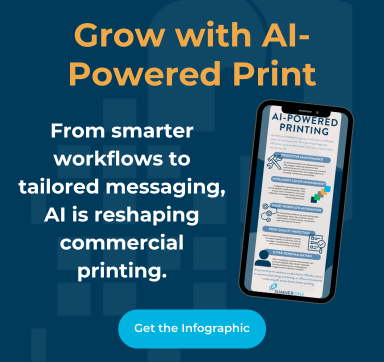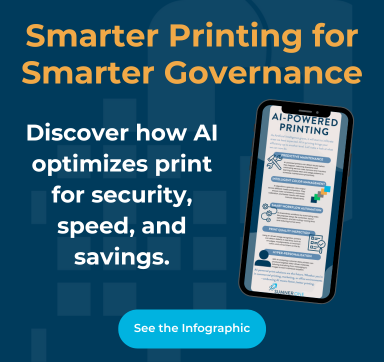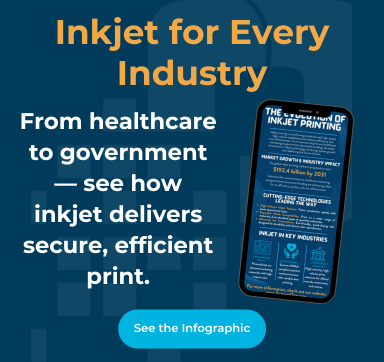Commercial print services face competition coming from every direction. It’s not just rival print businesses that need to be accounted for: Digital marketing alternatives present their own threat to any commercial print business, especially when defining commercial print profitability.
Given this increased competition, print businesses face a growing need to increase efficiency and productivity while reducing costs. This presents a path to sustained success that maintains profit margins while keeping the cost to customers low.
If your print business is struggling to face these challenges head-on, it might be time to revisit your business strategy to determine how you can adapt your business model to be more competitive in today’s market. Here are five factors to consider as you’re planning for future profitability.
1. You’ve Got to Track Cost-per-Impression.
When providing commercial print services to your customers, it’s important to keep customer ROI in mind. In order for commercial print services to be affordable to your audience and profitable as a business model, you need to be able to offer a cost-per-impression that is competitive with other marketing channels.
Cost-per-impression (CPM) can be a valuable metric in assessing your own efficiency as a print services provider. This is a calculation of the cost of having your marketing materials seen by/delivered to 1,000 customers or prospects. You can use a calculator to determine the cost-per-thousand impressions by dividing the total number of impressions by the total cost of printing and delivery. (A helpful CPM calculator can be found here).
By lowering this average cost, you can demonstrate new gains in productivity that allow your business to perform print services while keeping costs competitive and increasing your own profit potential.
2. Marketing Campaign ROI Can’t Be Ignored.
For clients who enlist your print production services, a number of factors will influence the marketing ROI of any single campaign. Even so, your business should pay attention to the campaign ROI enabled by your print services.
If customers aren’t able to use your print services to power marketing campaigns that drive positive ROI, they won’t be able to make the business use case to justify continued spending on print production—no matter how high-quality your printing may be.
Maintain strong communication with your customers to see how your print services are supporting effective marketing.
3. Speed Matters.
Fast service matters. Today’s print customers don’t just want high-quality prints—they also want responsiveness from their vendor that helps them launch print-based campaigns on a tight turnaround schedule.
Performance speed can vary depending on the print setup customers choose—laser printing, for example, tends to be faster than inkjet printing—but it has implications for commercial print processes when it comes to managing workflows and supporting efficient, productive operations.
4. Production Downtime Needs to Be Minimized.
When print systems are out of order, revenue-generating activities are put on hold. Any commercial print business should have a plan in place to minimize production downtime through routine maintenance, organized troubleshooting protocols, and quick response when hardware malfunctions do occur.
Hardware downtime has a direct impact on a print company’s ability to generate revenue, because all revenue-building activities undergo a forced pause whenever hardware is taken offline. By implementing managed print services or other procedures to address hardware outages, your commercial print business can increase productivity and potential profits.
5. Labor Costs and Print Waste Should Be Addressed.
In the quest to increase profit margins, commercial print businesses can’t overlook the value in reducing labor costs and print waste.
Meanwhile, high-quality print services can be provided while improving management of print materials, including ink and toner. This reduces production costs without sacrificing quality in your print production.
Conclusion
Digital marketing channels have created new competition for commercial print services, but the barriers to commercial print profitability all reside within this business model’s ability to deliver high-quality results while also creating new efficiencies that reduce production costs and increase potential ROI.
Today’s print products face a lot of competition from alternative mediums. If you want to stay on top of your game and ensure profitability both now and in the future, you need to seek out print hardware that prioritizes efficiency, productivity, and affordability all in one business printing solution.
 FREE EBOOK DOWNLOAD
FREE EBOOK DOWNLOAD

















